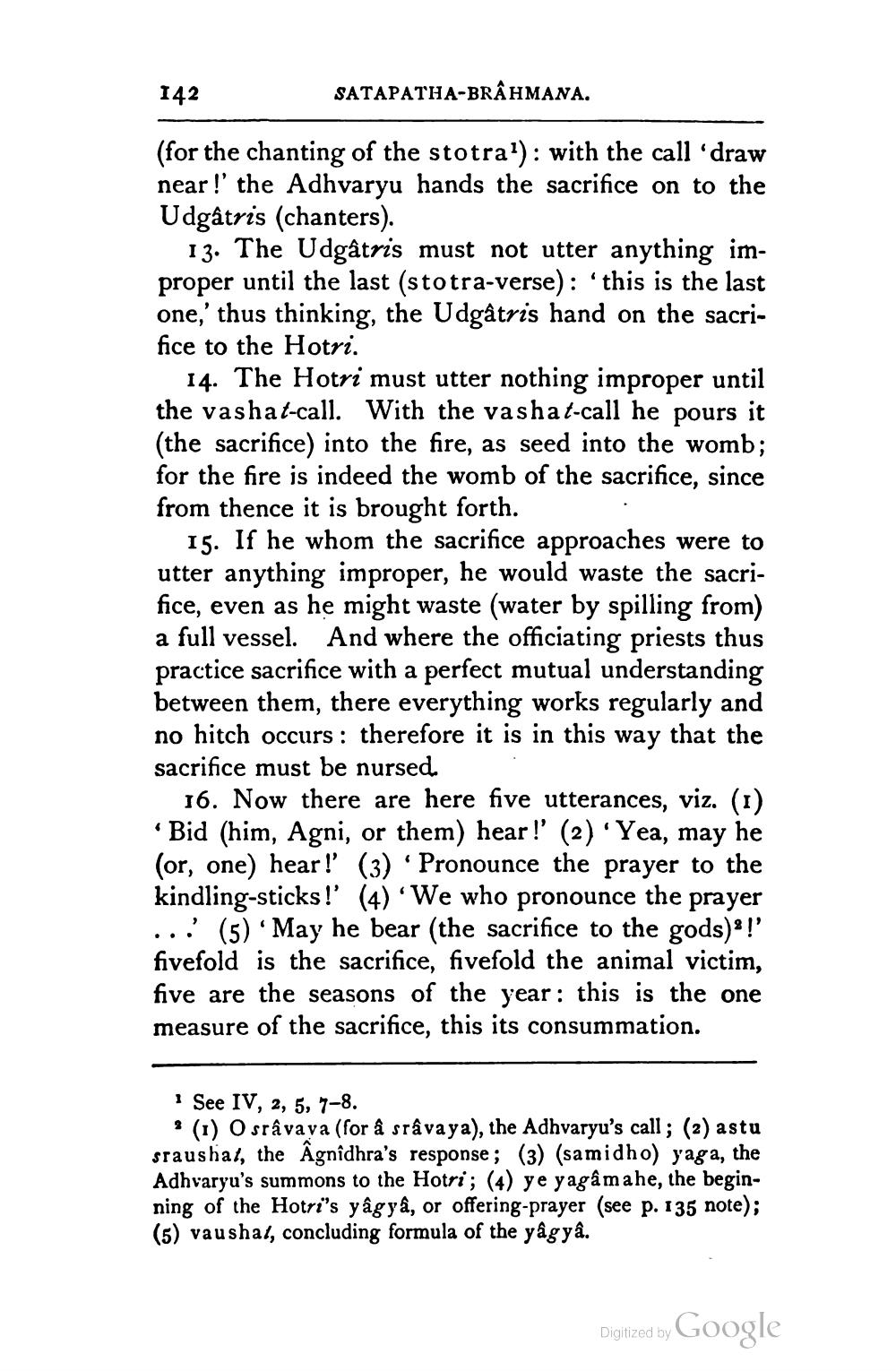________________
SATAPATHA-BRAHMANA.
(for the chanting of the stotra1): with the call 'draw near!' the Adhvaryu hands the sacrifice on to the Udgâtris (chanters).
13. The Udgâtris must not utter anything improper until the last (stotra-verse): 'this is the last one,' thus thinking, the Udgâtris hand on the sacrifice to the Hotri.
142
14. The Hotri must utter nothing improper until the vashat-call. With the vashat-call he pours it (the sacrifice) into the fire, as seed into the womb; for the fire is indeed the womb of the sacrifice, since from thence it is brought forth.
15. If he whom the sacrifice approaches were to utter anything improper, he would waste the sacrifice, even as he might waste (water by spilling from) a full vessel. And where the officiating priests thus practice sacrifice with a perfect mutual understanding between them, there everything works regularly and no hitch occurs: therefore it is in this way that the sacrifice must be nursed.
16. Now there are here five utterances, viz. (1) 'Bid (him, Agni, or them) hear!' (2) 'Yea, may he (or, one) hear!' (3) 'Pronounce the prayer to the kindling-sticks!' (4) 'We who pronounce the prayer ... (5) May he bear (the sacrifice to the gods)" !' fivefold is the sacrifice, fivefold the animal victim, five are the seasons of the year: this is the one measure of the sacrifice, this its consummation.
1 See IV, 2, 5, 7-8.
2 (1) Osrâvava (for â srâvaya), the Adhvaryu's call; (2) astu sraushat, the Âgnîdhra's response; (3) (samidho) yaga, the Adhvaryu's summons to the Hotri; (4) ye yagâmahe, the beginning of the Hotri's yâgyâ, or offering-prayer (see p. 135 note); (5) vausha, concluding formula of the yâgyâ.
Digitized by Google




